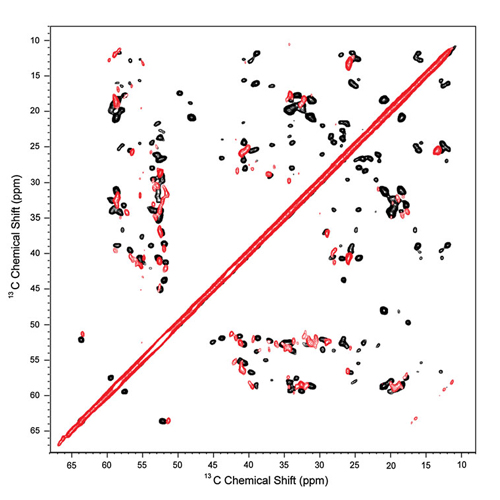Cryogenic solid state NMR studies of fibrils of the Alzheimer’s disease amyloid-β peptide: perspectives for DNP
12-Aug-2013
Journal of Biomolecular NMR, 2013, DOI 10.1007/s10858-013-9755-5, Volume 56, Issue 4, pp 359-363, published on 12.08.2013
Journal of Biomolecular NMR, online article
Journal of Biomolecular NMR, online article
Dynamic Nuclear Polarization solid-state NMR holds the potential to enable a dramatic increase in sensitivity by exploiting the large magnetic moment of the electron. However, applications to biological solids are hampered in uniformly isotopically enriched biomacromolecules due to line broadening which yields a limited spectral resolution at cryogenic temperatures. We show here that high magnetic fields allow to overcome the broadening of resonance lines often experienced at liquid nitrogen temperatures. For a fibril sample of the Alzheimer’s disease β-amyloid peptide, we find similar line widths at low temperature and at room temperature. The presented results open new perspectives for structural investigations in the solid-state.











